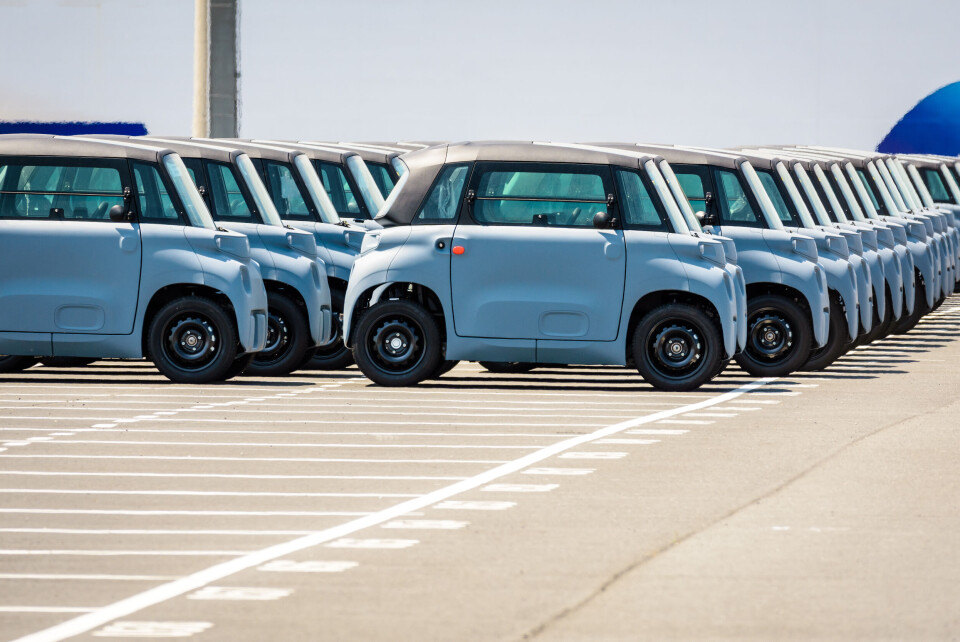-
Transavia to replace Air France for Nice-Orly flights
Up to eight return journeys a day to be offered by the budget carrier
-
Is this the end of free mountain rescue in France?
A new report says that charging for services is ‘legitimate and necessary’
-
How France’s new food strategy aims to change the national diet
The plan outlines new goals for meat consumption
Licence-free car sales boom in France due to ‘Covid effect’
Sales of the cars, which can be driven from age 14 without a licence, have soared by 73% year on year, with young people and the post-pandemic effect especially driving the change

Sales of new licence-free cars have soared by 73% in France this year, breaking all previous records, in a boom that has been partly attributed to the ‘Covid effect’.
Sales of the cars soared between January and September 2021, reaching a total of 16,044, versus 9,626 over the same period in 2019, figures from data analysts AAA Data show.
The cars have a maximum speed of 45km/h and can be driven by people aged 14 and over, without a full driving licence.
Marie-Laure Nivot, head of market intelligence at AAA Data, said that the boom could largely be attributed to what she called the ‘Covid effect’.
She told Le Figaro: “We are absolutely seeing a very, very strong evolution in the mobility market. The health crisis has changed people’s behaviour in terms of getting around, and has reinforced the demand for individual vehicles.”
As people seek to avoid public transport, demand has risen for smaller cars, motorised bikes, scooters, and second-hand cars.
Ms Nivot explained: “We have broken all records when it comes to these small cars. Look at, for example, the arrival of the Citroën Ami electric model, which is very liked among young people and which is seeing major success in Paris.”
A few hours after the opening of order of AMI - 100% ËLECTRIC in France 🇫🇷, Citroën already reaches almost 200 sales, 100% online pic.twitter.com/I5tAzkjhkx
— Citroën (@Citroen) May 18, 2020
Young people driving change
The boom in sales appears to be marking a shift in the types of people using these vehicles, with young people being especially interested in them.
Smaller, electric cars used to be associated with elderly people, or those who had had their licence suspended.
“15 years ago, it was seen more as a vehicle for elderly people in rural and isolated areas,” said Alison Whitaker, head of marketing and communication at European licence-free car leader Aixam.
“But this is changing. The need for autonomy and the lack of travel options for those who live in underserved zones are also factors that explain the success of the licence-free car.”
AAA Data shows that the cars – dubbed voiturettes, voiture sans permis (VSP), or even ‘yoghurt pot (pot de yaourt)’ cars in French – are seeing the most success in departments in Nord, followed by Paris, Bouches-du-Rhône and Var.
The cars start at €8,990 and have an average cost of €12,500.
As a result, it would appear that in many cases parents are helping their young adult children to buy these vehicles, which are seen as more “accessible”.
These vehicles require only an AM licence (permis AM), which can be obtained from a local driving school in just eight hours.
In addition, the cars are often seen as safer for young people than other forms of electric transport.
Mr Whittaker said: “For obvious reasons of safety and comfort, parents prefer to see their children in a licence-free car than on a scooter.”
What are the rules for these licence-free cars?
- Anyone born before 1988 can drive one without any licence or training.
- If you were born in 1988 or later, you need to take the brevet de sécurité routière (BSR). The course involves a theory exam and eight hours of driving, one hour of which is on instruction tracks, at least three hours in traffic with an instructor, and an hour of risk theory instruction.
- Prices for courses are not fixed, but the government website service-public.fr says they can cost up to €400.
- Driving schools and local associations, often those running youth clubs, offer BSR training, allowing students as young as 14 to drive these vehicles.
- To qualify as a voiture sans permis, the vehicle has to have an empty weight of 425kg, be a maximum of three metres long, have only two seats, a motor limited to 6kw (8HP), and a top speed of 45km/h.
- Cannot be driven on autoroutes, dual carriageways or express lanes where the speed limit usually 110 km/h or more.
Related articles
The licence-free cars you can drive from age 14 in France
Citroën's licence-free electric cars expand from Paris to Washington
























